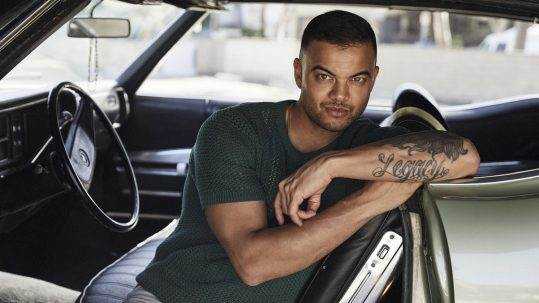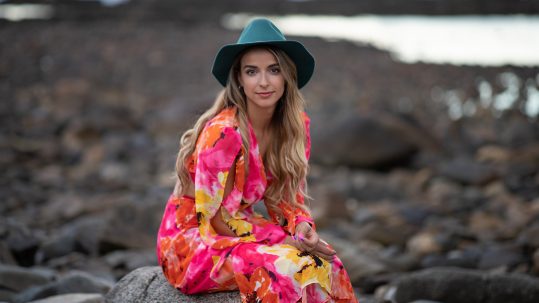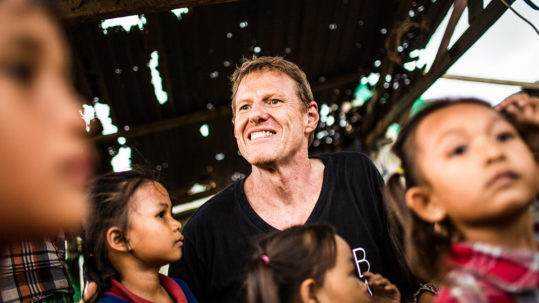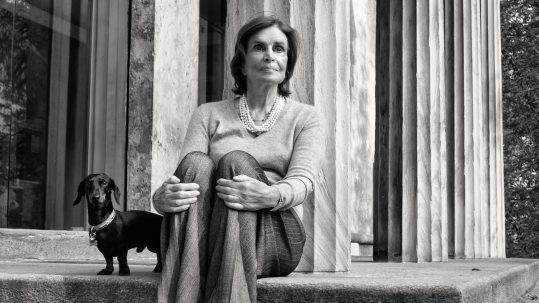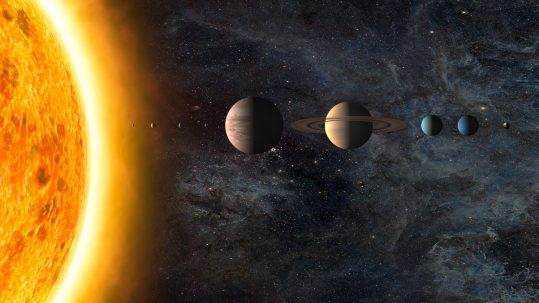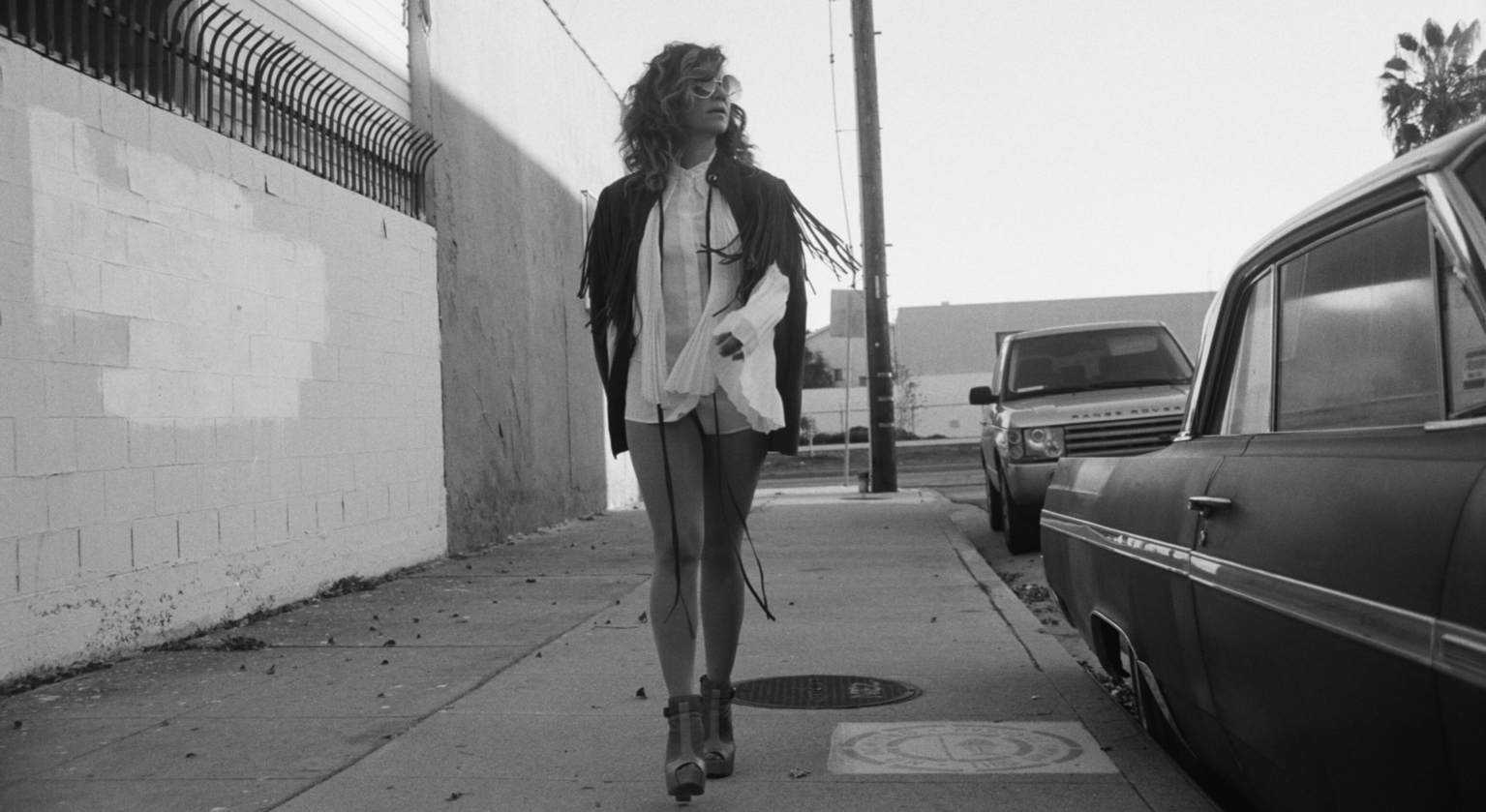
19 Aug Nikka Costa
Photo by Melodie Mcdaniel
Nikka Costa
Child star at nine, Nikka Costa ran with the best from an early age. From Frank Sinatra, with whom she sang when she was little, to Prince, who became her friend and mentor for over 15 years, Costa learned her craft from the masters. With a myriad of hits under her belt and a distinctive soulful voice, Nikka Costa is the pure embodiment of what a true artist really is.
By Victoria Adelaide | Aug 20. 2018
Victoria Adelaide: You were a child star. How did you handle fame at such a young age?
Nikka Costa: I loved singing and I was used to this lifestyle because my father was a musician. I was always in the studio with him, saw concerts in which he performed, and we were always traveling. But when I started singing, I was so successful. The workload was overwhelming; it was a lot. We were constantly traveling, mainly in Europe. I was attending school in America, being a normal child, then I would go to Europe and I would have to work long hours but still had to remain pleasant and smiley even though I had crazy jet lag. It was a lot to take as a child because it was the world of adults. It wasn’t like the workload changed because I was a child, so I just had to go with the pace of an adult world, which was sometimes very exhausting. But I had a lot of breaks too, so I could have balance. I guess that’s why I ended up being so normal, grounded, and sane.
VA: How did you make the transition as you grew up?
NC: Well, I made the record when I was eight and that was massive. We had never planned that it would be a success of this magnitude, and the way it all happened was just an accident. I made the follow-up when I was 10, but while promoting the record, my father passed away. I still had to promote that record, and it put this weird tone on that period of my life. After the promotion and the record were done, I was about 13, I said to my mother that I wanted to go to school and be normal. I didn’t want to travel and leave my friends and do all that. So my mother just let me be. I didn’t make records; I wasn’t singing. I was doing activities in school and I consciously stepped out of the workforce to just be a child. Then, at 16, I realized I wanted to pursue singing and I consciously went back to it. But I always took long breaks. I never did this on purpose but, based on how my process is and has always been, I go really hard for a few years and then I completely remove myself from the art, from everything, and I just have a very normal life. Sometimes, that’s probably looked at as a bad way to stay in the public eye. If you’re always removing yourself, you have to start over again. But I like it because I can re-assess what kind of artist I want to be the next time around. I give myself time to live and see life so I can write about it. Always being in the public eye is not that important to me.
VA: Regularly disappearing from the public eye…isn’t it a way for you to keep in touch with reality?
NC: Yes. Some people, as I said, are like, “You haven’t become as big as you should have become because you keep going away and when you come back you have to start over, get your fans back; You’re not staying on the same level as you were the last time etc..” But, for me, that’s just a chase that I don’t want to do—I don’t care. I just want to be able to make my music and have an audience that comes to my shows. I don’t want to sacrifice other parts of my life to have fame. It’s not the most important thing to me. I enjoy and I love it but I have so many other things that feed my soul.
VA: What has been your most incredible collaboration?
NC: Well, there have been a few, but I’d choose the collaborations that always made me pinch myself, such as those with Prince and Frank Sinatra. I had so many opportunities working with Prince. He really turned out to be a mentor to me for 15 years. It never felt really normal, because it was always just like, “Wow, I’m sitting here with Prince, and he’s giving me advice.” It did get to a point where we had spent a lot of time together; we did a lot of creating together. I’ve learned so much from him just by watching him or just the advice that he would give me. He was a very generous person and artist. So I have to say our relationship was pretty incredible and it was a long chapter—a good 15 years! And then when I was little, I sang at the White House with Frank Sinatra. So that was a big one too. He was one of the best singers ever. I ran with the best from a very young age.
VA: Since your beginning, the business industry has changed a lot. What are the aspects of it you like and dislike the most?
NC: It’s funny. I feel it may be the same answer for both questions. (laughs) I really dislike the whole social media aspect of self-promotion. It takes away time that you could be spending creating and makes you have to talk about what you’re creating or what you want to create. And then you’re busy creating some sort of brand or perception of your life, when you really should just be sitting down with a guitar, writing a song, or getting your friends together to create a dance or a script. Or actually doing your art, but you have less time because you’re so busy posting about doing it. I find it really time-consuming; I have to make myself do it. Also, I’m a mother with two kids, so I need to really find my little moments to be able to be creative. So, when I have to post something instead, it makes me feel frustrated. On the other hand, I think it’s great we can discover new things, musically and artistically, online. It’s a platform for people who might not ever get a record deal or a movie deal. There are so many outlets for people to be heard and seen now. I think that’s good, because a lot of people in the past didn’t get opportunities, so now you can just put yourself out there.
VA: You created your own label. What is it like being an independent artist?
NC: It’s hard, but it’s great to be able to create, do whatever you want, and not have anyone in a suit telling you what kind of songs you should do or how you should express yourself as an artist. Having said that, it’s very difficult to be an independent artist; there is no money and there is no marketing team. You have to do everything yourself. You pay in that way to be creatively free.
VA: Prince was very vocal about being an independent artist. You spent so many years around him; did he influence you in some way to become an independent artist?
NC: We talked about it but I already had a very independent spirit. I have been told what kind of artist I should be and what songs I was supposed to sing since I was a child. So, when I could finally carve my own path, write my own songs, and sing how I wanted to sing, I was ready way before I met Prince. But seeing him as an artist and obviously seeing him from a fan perspective, going through all the labels, fighting for artistic rights, and all he had to go through, it was definitely inspiring. But it was also a lot easier for someone like Prince to be an independent artist because he had a lot of money. So he could go and market his own stuff and put a million dollars towards promotion and marketing. It’s easy to be independent when you have no cash-flow problems. So, it was a different perspective—something to strive towards but easier said than done.
VA: What is your writing process?
NC: It really depends. Usually, I sit at the piano. When I’m trying to make funk songs, I’m really into drums. It’s really important to me that the beat feels really good, the bass line, and I sing over it. I always write lyrics later, I let the music and the melody inform the feeling and the spirit of what that song wants to be about.
VA: Is there an artist you’d like to work with?
NC: I would love to do something with Daft Punk and Childish Gambino.
VA: Tell us a bit about Nikka & Strings.
NC: The String album was unplanned. It was inspired by some shows we were doing for fun. I wanted to do songs that I love to sing. In a funk show, you can’t really do a lot of slow songs, so it was a nice opportunity to just be able to really sink my teeth into songs that I loved and felt really connected to emotionally. It’s an emotional and special album for me because I had two good friends who passed away along the span of the shows and of the recording. Also, we recorded it live in one day.
VA: The old school way!
NC: Yeah, and I’m really proud of that. It has soul. We couldn’t fix everything, but that was the emotion of the moment and I love that.
VA: What can we expect from you in the next few years?
NC: I’m working on a new funk record, so that’s exciting. I might do another string album; we’ll see. I would like to do a lot of collaborations this year, to spread my wings a little bit more with other people.
VA: Your last word?
NC: Give more hugs! (smiles)



